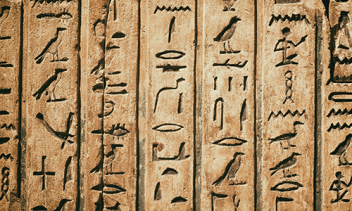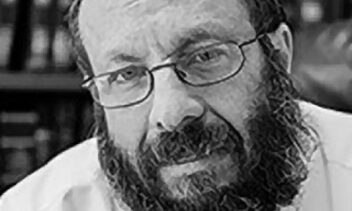In what genre is the Torah? This is a question we have come back to over and over in our conversations about science and religion. Is the Torah a book of science, morality, ethics, or even religion? Can the Torah be put on any one bookshelf, or by its nature, does it refuse easy demarcation?
Biblical concordism is one area of thought that considers the Bible to belong (at least partially) on the science bookshelf. It refers to attempts to read the Bible in light of contemporary science. One fascinating example of such Biblical concordism is the work of the Israeli physicist Nathan Aviezer, who reads the six days of creation as six stages in the evolutionary story. In David Shatz’s summary:
That the created light is the primeval fireball; that the separation of light from dark is the decoupling of electromagnetic radiation from the dark fireball-plasma mixture; that the “waters above the firmament” refer to the ice in outer regions of the solar system; that the gathering of waters into one place is the receding of oceans described by science; that ha-tanninim ha-gedolim (said by other concordists to be dinosaurs) are the Ediacaran fauna, which, as Rashi says about the tanninim, became extinct; that the two stages in the development of animals (days five and six) correspond to two stages of their development according to evolutionary theory.
Shatz, in his important article on the topic of Biblical concordism, considers this question of genre: Should the Torah include the same information that a science textbook may include, albeit in a different language? Even if the Torah is primarily supposed to be a work of law, theology, ethics, or philosophy, might it also include science? Acknowledging the visceral distaste that so many people have for such attempts, Shatz evaluates the arguments in favor and against these alignments. He points out that Biblical concordism is often used in Kiruv, Jewish outreach, with complicated effects. In his words:
Concordists use the “discovery” that the Torah already includes truths that scientists discovered millennia later to instill awe, wonder, and belief in the Author’s omniscience. But when kiruv is done this way, fluctuations in scientific beliefs could induce cynicism over time: when science changes, out go the proofs of the author’s omniscience that were based on a correspondence between Genesis and the old science. If anything, the Author will look ignorant, has ve-shalom, when the science changes.
… recounting the story of Creation is … to tell us what happened during Creation, from the perspective of what we need to know to guide our lives.
In recent history, the question of genre has had real-world consequences, most poignantly in the “Slifkin controversy,” in which several works of Rabbi Natan Slifkin on the topic of science, zoology, and Judaism, were banned by several leading ultra-Orthodox rabbis. Slifkin’s openness to scientific theory – and evaluation of the Torah and Talmud in light of those theories – prompted severe backlash.
The backlash was predicated not just on the content of Slifkin’s work, but also on his tone and perspective, which was seen by some to be too open or critical. This controversy can be considered from the perspective of genre – if the Torah indeed is not a scientific work but a tract of ethics, law, and religious philosophy, then we need not fear scientific conclusions about creation that don’t easily align with the Torah’s apparent account. However, if the Torah is indeed a book that encompasses a science understandable to humanity, then books like Slifkin’s ban become the center of intense controversy.
In our breakdown of the attitudes that have guided the relationship between science and religion (which you can find here), we used the analogy of the Torah as a book – with a genre – to understand the ways thinkers have navigated conflicts or meeting points between science and religion. The question of genre is fundamental to our understanding of the Torah, and to the way we approach the entire endeavor of reading the Divine text at the heart of the religious project.
Enter Rabbi David Fohrman. For David – the acclaimed author, lecturer, and founder of the Aleph Beta Academy – the question of how to read the book of the Torah is the central question when considering science and religion. David is an eminent reader of the Torah, and his deeply erudite and highly creative readings of Biblical narratives have brought him dedicated readers and listeners from all ages and locales. David has a particular taste for the very beginning of the Torah (and of humanity), and his recently-published Genesis: A Parsha Companion offers the best of his rich thoughts on the topic.
His deep interest in Genesis and the ways we read the Torah make David an expert on the question of science and Torah. In his words, explaining the fear some have for the early chapters of the Torah:
The fear stems from the fact that some of us don’t know how to reconcile the science; it seems strange, for example, that during Creation vegetation preceded the sun. But God did start from the beginning, so we should start there.
If the Torah is a guidebook, then the reason it’s recounting the story of Creation is not to explain the science behind it but rather to tell us what happened during Creation, from the perspective of what we need to know to guide our lives. You would expect the beginning of such a guidebook to touch upon some of the existential questions that are at the very center of what it means to be a human being: How do I orient myself in the universe? How do I develop a relationship with God and with other humans? What does it mean to be a human being? There is a real opportunity to touch on these fundamental issues right there at the very beginning.
Science, religion, and Torah – a question of genre.
In Rabbi David Fohrman’s conversation with 18Forty, he brings his humility, clear thinking, and erudition to the question of science and religion. He is a true joy to listen to, completely comfortable in the world of ideas and religion. Listen to David now to better appreciate the goals and guidance of the Torah, today.
Listen to our podcast with Rabbi David Fohrman.








